Timeless Wisdom
Seminar shows Cornerstone students how Frederick Douglass’ thoughts on inequity are as relevant as ever in 21st century America
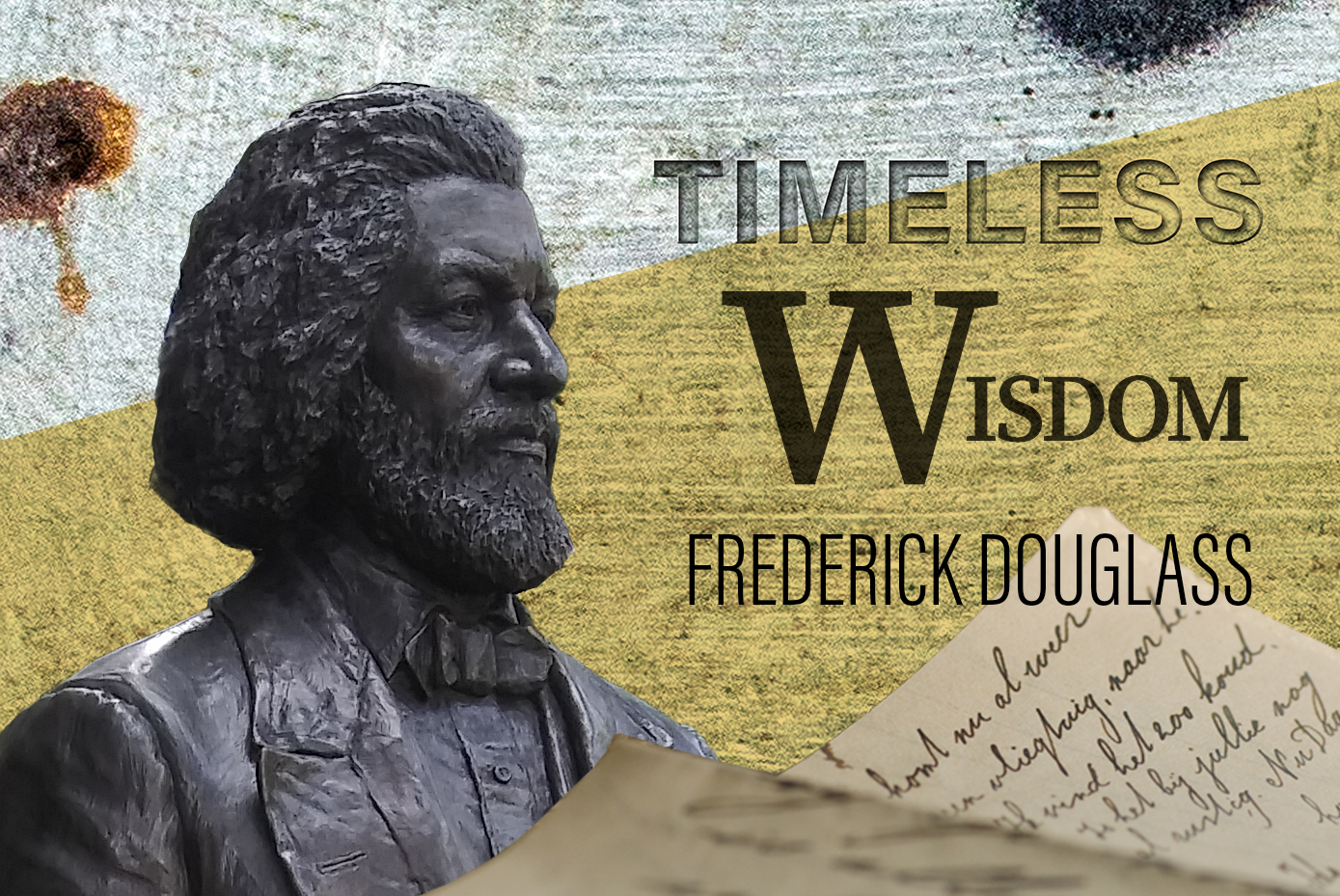
Frederick Douglass was a man of deep conviction, and also great complexity.
Himself an escaped slave, Douglass gained international renown in the 19th century as a brilliant orator and leader in the American abolitionist movement. But while Douglass’ passion for the cause of equality drove his actions as a reformer, his rhetoric could seem contradictory at times.
He could in one breath argue that slavery was a stain on American civilization and express optimism about the country’s inherent goodness in the next. While at times supporting political violence in service of just causes, Douglass also believed it was appropriate and necessary to engage with those who disagreed with his cause – even slave owners.
Who better, then, to exemplify the usefulness of open dialogue in this hyper-polarized, complicated period in American history? This was Visiting Assistant Professor Zachary Goldsmith’s rationale when he arranged for a select group of Cornerstone Integrated Liberal Arts students to examine Douglass and discuss his political thought in a one-day seminar last semester.
“We’re all talking now about topics like Black Lives Matter, the nature of policing, the legacy of racism in the country, and I think that these students who are involved in those conversations, now they can see, perhaps, some of the background and the longer history of the debates that we’ve had in the country,” Goldsmith said of the Institute for Humane Studies seminar taught by Douglas Casson, professor of political science at St. Olaf College in Minnesota.
“Since the founding of the country, there have been spirited debates about the nature of slavery as an institution and its moral implications,” Goldsmith continued. “And one of the people who was really one of the most involved in leading that discussion was Douglass, and so they could get a more nuanced and thoughtful appreciation for these debates today.”
As an instructor in the Cornerstone program, Goldsmith’s duties include instilling in his students an appreciation for a well-communicated idea and an understanding of how history connects to modern events. Over the course of their conversations, the students recognized that Douglass’ ability to communicate thoughtful and nuanced arguments – rather than rigidly insisting there was only one correct solution – is sorely lacking in today’s political climate.
“Having ideas that are on opposite sides and being able to reconcile them, I think that’s kind of like the epitome of compromise,” said seminar participant Sarah DeVito, a freshman in first-year engineering from Auburn, New Hampshire. “It would be important for more people to not necessarily hold two opposite beliefs, but understand that they can exist together and that people do hold both of those beliefs. I think if people were able to reconcile those things in their mind, or at least acknowledge that they can be reconciled, then they would be more likely to compromise and understand. That’s really all we need right now.”
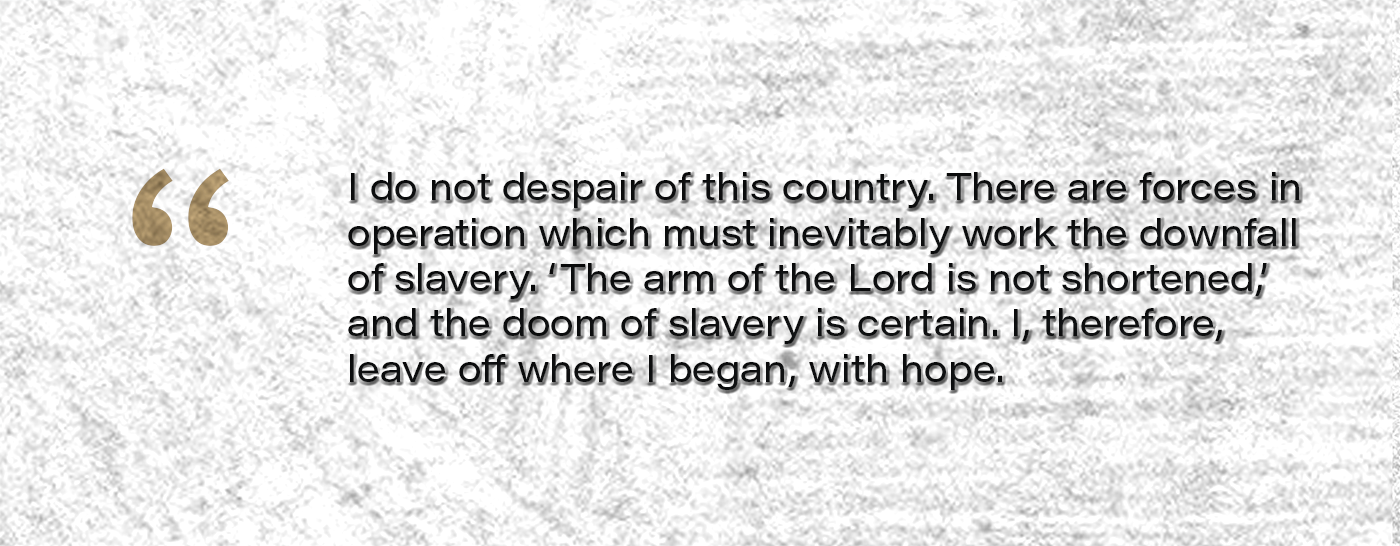
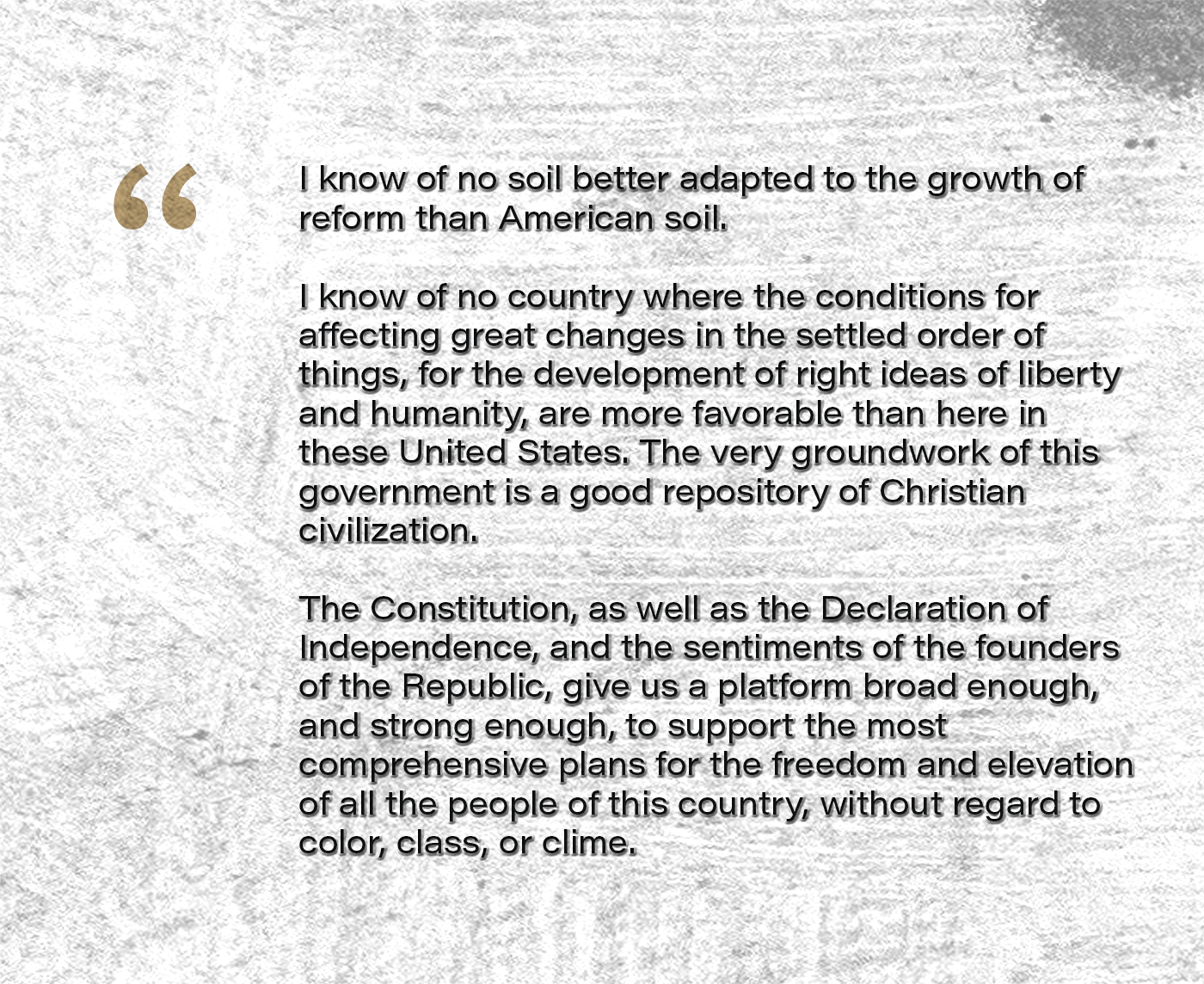
Seminar participant Kate Bonvillain observed that Douglass had every reason to resent an America where slavery still existed, but that was hardly his attitude in the years leading up to the Civil War. Instead, Douglass pointed at the ideals set forth in the nation’s founding documents as indications of what the United States could become when its citizens were truly free.
The optimism that prompted Douglass to describe America as “the social wonder of the world” was a defining characteristic of his rhetoric in that era.
“I think in a lot of ways Douglass viewed the nation like a person, where you make mistakes and you pick yourself back up and realize that you’re wrong and you move forward, just trying to do the best you can from there on out,” said DeVito, who took Goldsmith’s Cornerstone SCLA 102 course in fall 2020. “That’s how I think he viewed it in a matter of, yes, slavery was absolutely terrible and it should be abolished and it has no future. But despite the fact that this is absolutely terrible, we can still do better as a people.”

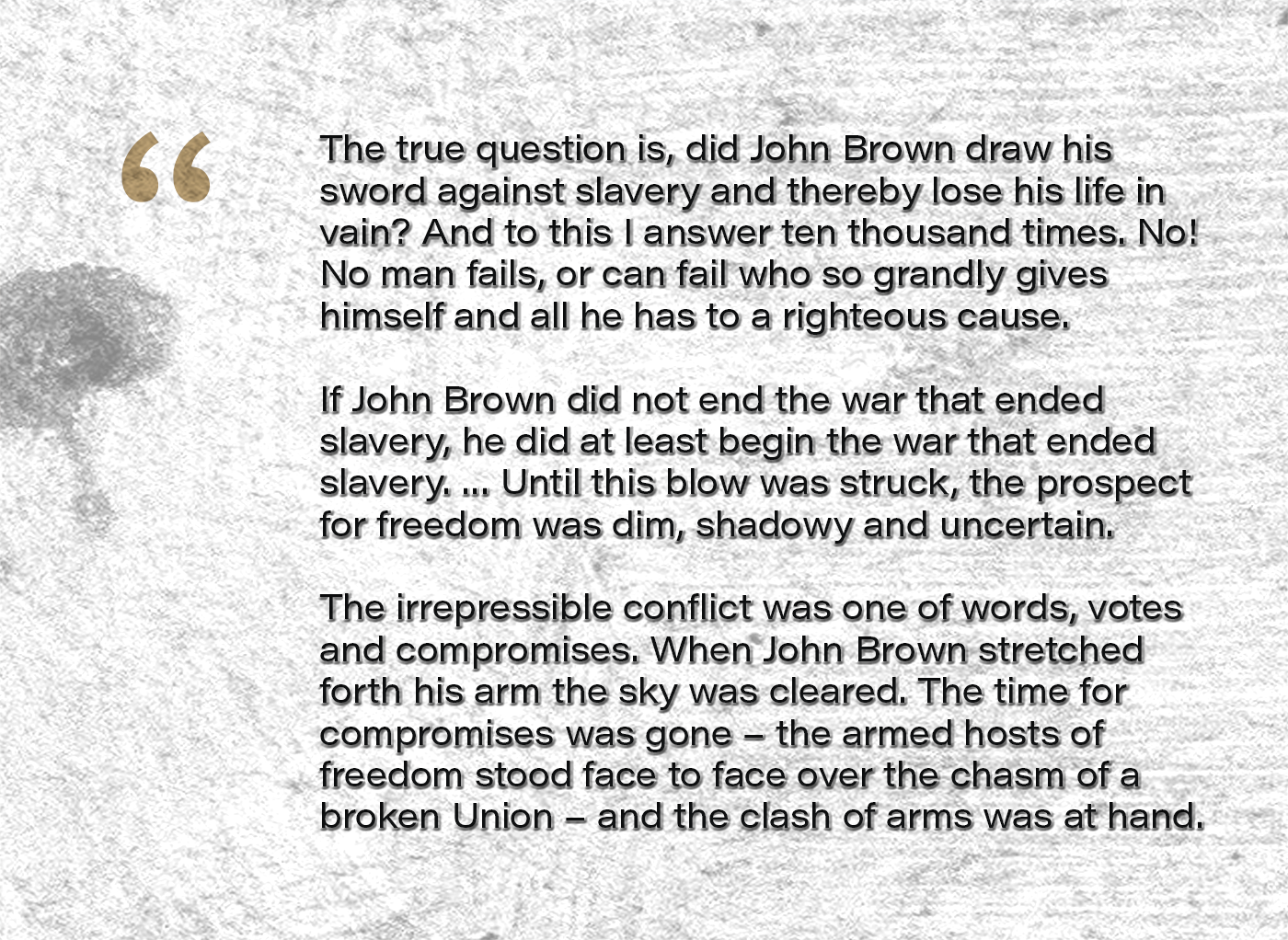
Douglass may have advocated for resolving disputes through thoughtful, open dialogue, but he also believed America’s slavery dispute would only be settled via violent conflict. He therefore supported violence in support of a cause so important, which explained his full-throated defense of abolitionist John Brown’s 1859 raid on a federal arsenal at Harpers Ferry, Virginia – one of the final major events that sparked the Civil War.
Goldsmith and the students agreed that this perceived contradiction motivated some of the most intriguing conversation during the seminar.
“You had a time that was worse than our time now, and yet Douglass was able to have a thoughtful debate and discussion with a minimum of name-calling and canceling and the types of things that we have today,” Goldsmith said. “I think you see a lack of that civility on both sides of the political spectrum today. One of the things this seminar is really good for is that there were no wrong answers, there were no right answers. People were free to thoughtfully have an open discussion.”
It reinforced one of Bonvillain’s favorite aspects of the two Cornerstone courses she has taken thus far: SCLA 102 in the fall with Associate Teaching Professor Michael Malone and SCLA 101 this semester with Cornerstone director Melinda Zook.
“It’s just been great hearing everyone’s opinion and just being able to learn some of these things by actually listening to other people in a respectful way and discussing everything,” said Bonvillain, a freshman in first-year engineering from Houma, Louisiana.
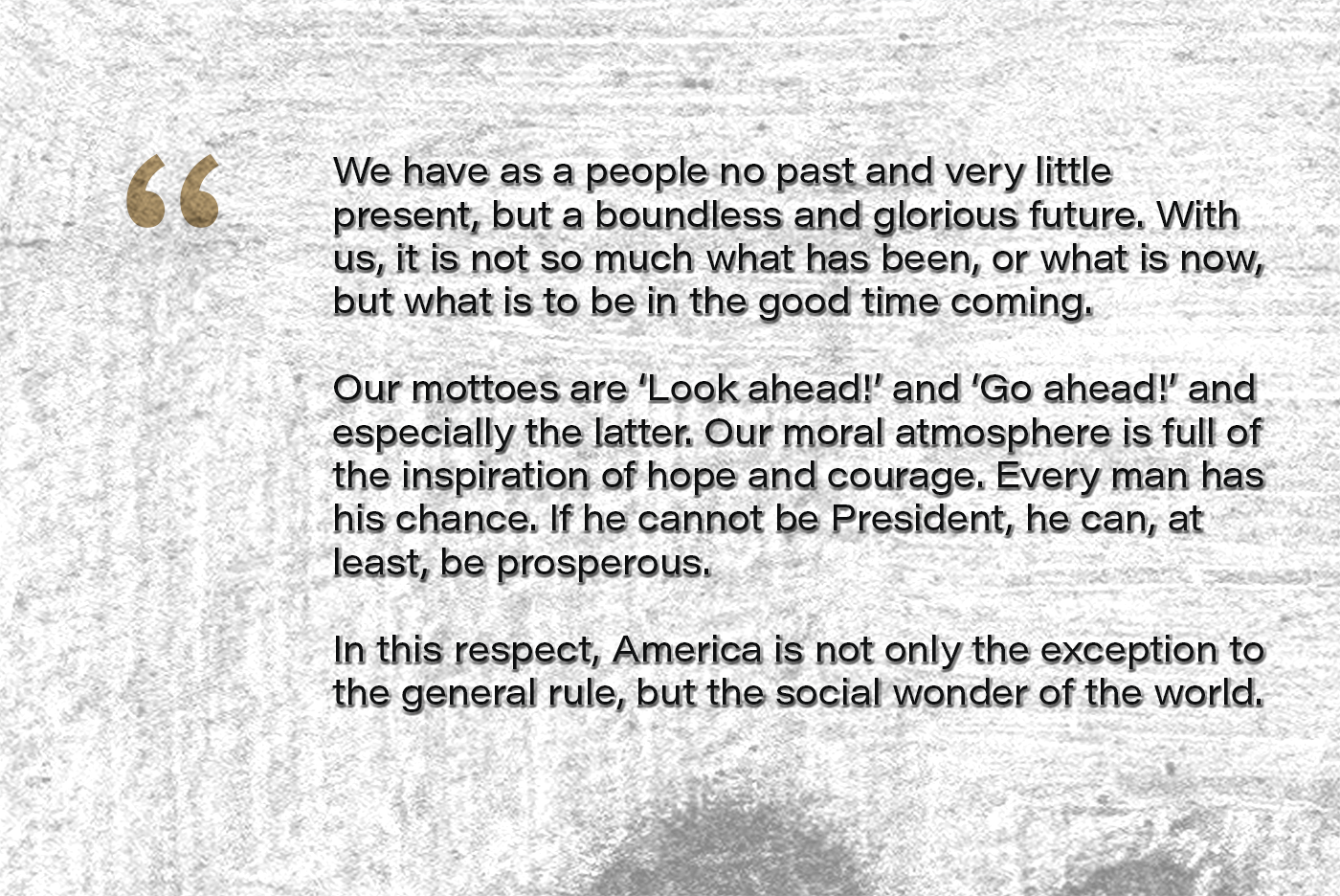
In true Cornerstone fashion, this conversation about the past was also very much about the present. The force of Douglass’ will and the weight of his rhetorical arguments propelled an abolitionist movement that eventually succeeded in eliminating slavery, and yet racial inequality persists nearly two centuries later.
“It made me realize that even though he lived a long time ago, if he were still in the world today, he’d still be able to make an impact,” Bonvillain said. “It actually was kind of sad that he did all of the hard work that he put in and we’re still facing issues that haven’t been resolved.”
Nonetheless, Douglass’ impact still resonates today, reminding those who still study his speeches and publications of how much good can be accomplished through engaged dialogue and a commitment to equity.
“I honestly don’t think things would be the way they are today without him,” Bonvillain said, “so he was definitely a man that changed history.”